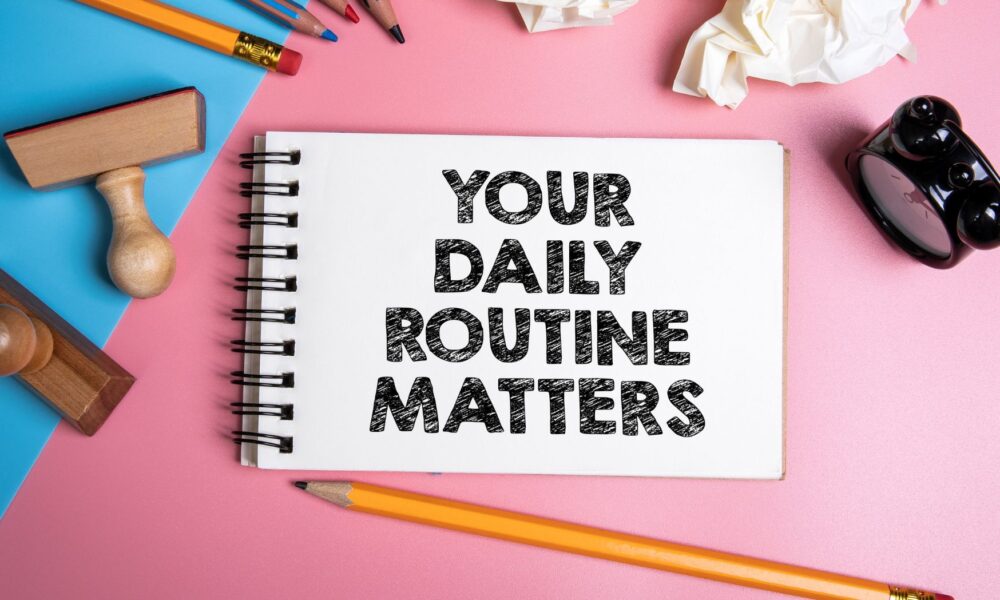Last Updated on May 6, 2025 by Kavya K
The Importance of Maintaining a Routine While Traveling
Traveling is a thrilling experience that opens doors to new cultures, landscapes, and memories. But amid the excitement, your everyday routine can easily fall by the wayside. Whether you\’re a frequent flyer for business or embarking on a much-anticipated vacation, maintaining your routine while on the road is essential for staying grounded. Routines provide structure, reduce stress, and help you maintain a sense of control in an otherwise unpredictable environment. This can be especially important when your travels involve crossing time zones, experiencing unfamiliar surroundings, or navigating different social expectations. Sticking to a routine doesn’t mean being rigid or boring—it’s about ensuring that your mental, physical, and emotional health stays in check, even while embracing new experiences.
Planning Ahead Is Key to Consistency
The best way to stick to your routine while traveling is to prepare before you even leave home. Take some time to identify the essential habits you want to maintain during your trip. This could include things like morning meditation, a workout schedule, journaling, eating healthy meals, or simply getting enough sleep. Once you’ve identified your priorities, plan your travel itinerary around them. For instance, choose accommodations with fitness centers or nearby parks if working out is important. If you prefer quiet mornings, avoid scheduling early tours or meetings that would interrupt your morning ritual. Packing also plays a crucial role—bring travel-sized versions of any tools or products you use daily, such as skincare items, resistance bands, or a small journal. A well-thought-out plan provides the foundation for keeping your habits intact even when you\’re miles away from home.
Adapt Your Routine to Fit Your Environment
One of the main challenges while traveling is that you can’t always control your environment. Different time zones, climates, accommodations, and schedules can interfere with your usual activities. Instead of trying to replicate your home routine exactly, focus on adapting it to your current setting. Flexibility is key here. For instance, if you usually go for a run every morning but find yourself in a crowded city with no parks nearby, try doing a hotel-room workout instead. If your typical breakfast isn\’t available, find a healthy local alternative that still gives you energy for the day. If you\’re used to meditating in a quiet room but now share a space with others, consider using noise-canceling headphones or meditating at a different time. Being willing to adapt ensures that your core habits stay consistent, even if the form they take looks a little different.
Managing Time Zones and Sleep Patterns
Jet lag can wreak havoc on your routine, especially when crossing multiple time zones. One of the most effective ways to minimize the impact of jet lag is to gradually adjust your internal clock a few days before your trip. Try shifting your bedtime and wake-up time closer to your destination’s time zone. Once you arrive, get exposure to natural light as early as possible to help reset your circadian rhythm. Resist the temptation to nap for long periods during the day, as this can throw off your sleep schedule. Use tools like eye masks, earplugs, and white noise apps to create a sleep-friendly environment wherever you’re staying. Keeping a consistent sleep and wake time, even on the road, helps maintain energy levels, boosts your mood, and reinforces your overall routine.
Prioritizing Nutrition and Hydration
Eating habits often go off track while traveling, thanks to irregular schedules, airport food, and the temptation to indulge in local cuisine. While it\’s perfectly okay to enjoy new dishes, try to balance indulgence with nourishment. Staying hydrated is especially crucial, as air travel and unfamiliar climates can easily lead to dehydration. Carry a reusable water bottle and make it a point to refill it throughout the day. If you\’re staying at a hotel, take advantage of breakfast buffets to choose healthier options like fruits, eggs, or whole grains. When eating out, look for meals that align with your typical diet, or try to include at least one healthy meal per day. Keeping some healthy snacks like nuts, granola bars, or dried fruit in your bag can help you avoid grabbing junk food when hunger strikes unexpectedly. When your body feels good, sticking to other parts of your routine becomes much easier.
Staying Active Without Overcomplicating It
Fitness routines are often the first to get disrupted while traveling, but staying active doesn\’t have to be complicated or time-consuming. The key is to incorporate movement into your day in a way that feels natural and enjoyable. Walking is one of the easiest ways to stay active and explore your destination at the same time. You can also take the stairs instead of the elevator, walk instead of taking a cab for short distances, or join a local yoga or fitness class if your schedule allows. Many hotel rooms have enough space for bodyweight exercises like push-ups, squats, and planks. If you\’re a digital nomad or working while traveling, consider using short workout videos or fitness apps that require no equipment and fit into your schedule. Even 15 to 20 minutes of daily movement can make a big difference in your energy, focus, and overall well-being.
Maintaining Mental and Emotional Balance
Travel can be mentally stimulating, but it can also be exhausting. New environments, language barriers, and constant movement can take a toll on your mental health if you\’re not careful. This is why carving out time for mental self-care is essential to maintaining a balanced routine. Journaling, meditation, or simply taking a quiet moment to reflect can help process experiences and stay grounded. If you’re someone who regularly practices mindfulness or gratitude exercises at home, make an effort to continue them on the road. Digital tools like mindfulness apps, audiobooks, or calming playlists can serve as portable support systems. Remember to also build in downtime. While it\’s tempting to pack every hour of the day with activities, giving yourself moments to rest and recharge will actually enhance your travel experience and help you stick to your routine more effectively.
Leveraging Technology for Routine Reinforcement
In today’s digital world, there are countless apps and tools designed to help you stay on track with your habits, no matter where you are. Use calendar reminders to schedule key activities like workouts or journaling sessions. Habit-tracking apps can keep you accountable, while meditation apps can help you relax in unfamiliar settings. If you\’re a remote worker, use time-blocking techniques or productivity apps like Notion, Todoist, or Trello to organize your day. Wearable devices like smartwatches can remind you to move, hydrate, or get enough rest. Leveraging technology this way acts like a virtual assistant for your routine, nudging you to stay consistent and offering flexibility when life on the road gets hectic.
Being Realistic and Compassionate With Yourself
Perhaps the most important thing to remember is that travel is inherently different from everyday life, and that\’s okay. You won’t always be able to do everything exactly the same way as you would at home—and that’s part of the experience. Give yourself grace and avoid an all-or-nothing mindset. If you miss a workout or have a late-night meal, it doesn’t mean your entire routine is ruined. Focus on consistency over perfection. Even doing 50% of your normal routine can help you stay connected to your goals and create a sense of stability. The key is to be intentional and mindful about your habits without being overly critical of yourself when things don’t go exactly to plan. After all, travel is meant to enrich your life, not add stress. Maintaining a routine should support your journey, not restrict it.










